22 Sep 2023 | Afghanistan, Awards, Burma, China, Fellowship 2023, India, Iran, News and features, Opinion, Russia, Ruth's blog, Somalia, Ukraine
For the last 22 years Index on Censorship has been proud to host the annual Freedom of Expression Awards. It’s an opportunity to celebrate the brave artists, journalists and campaigners from around the world who fight for freedom of expression in the most challenging of circumstances. There are some truly incredible nominees for the awards this year, who more than ever, are challenging the repressive regimes they live under to fight for the rights of ordinary people.
2023 has seen the continuation of Russia’s war on Ukraine with its horrific consequences for the people of Ukraine and the severe repression for those speaking out against the war in Russia. The CCP in China continues to repress journalists, particularly those who attempt to uncover the crimes against the Uyghur people, and activists and protesters for women’s rights in Iran and Afghanistan face vicious attacks from the authorities.
The shortlisted candidates for the Arts award are Visual Rebellion, a platform for sharing the work of photographers, filmmakers, and artists documenting the protests in Myanmar; Iranian rapper Toomaj Salehi, who sings about injustice and the abuse of civil society by the authorities, for which he has been imprisoned; and Ukrainians, curator Maria Lanko and artist Pavlo Makov, who have worked to protect Ukrainian art in the face of Russian war crimes.
The shortlisted candidates for the Campaigning award are Matiullah Wesa from Afghanistan who has worked to ensure all children, but especially girls, have access to education and educational materials; Russian student Olesya Krivtsova who has publicly opposed Russia’s war on Ukraine and has fled the country to avoid up to 10 years’ imprisonment; the Xinjiang Victim’s Database, which records the incarceration and persecution of the Uyghur population in Xinjiang province; and the Africa Human Rights Network which works to support and protect human rights defenders across the Great Lakes region of Africa.
And the shortlisted candidates for the Journalism award are Bilan Media, Somalia’s first women-only media organisation and newsroom; Mohammed Zubair, co-founder of the Indian fact-checking platform Alt News which has led to threats after challenging misinformation; and Afghan Mortaza Behboudi, in exile in France, who continues to travel to Afghanistan every month to work with different media outlets to ensure the voices of Afghans are heard.
The Freedom of Expression Awards are a time to remind ourselves of the importance of freedom of expression and to commit ourselves to protecting our own freedom of expression. It is easily lost but hard fought for. We must not forget that.
22 Sep 2023 | Afghanistan, Africa, Awards, China, Fellowship 2023, Russia
Matiullah Wesa (Afghanistan)
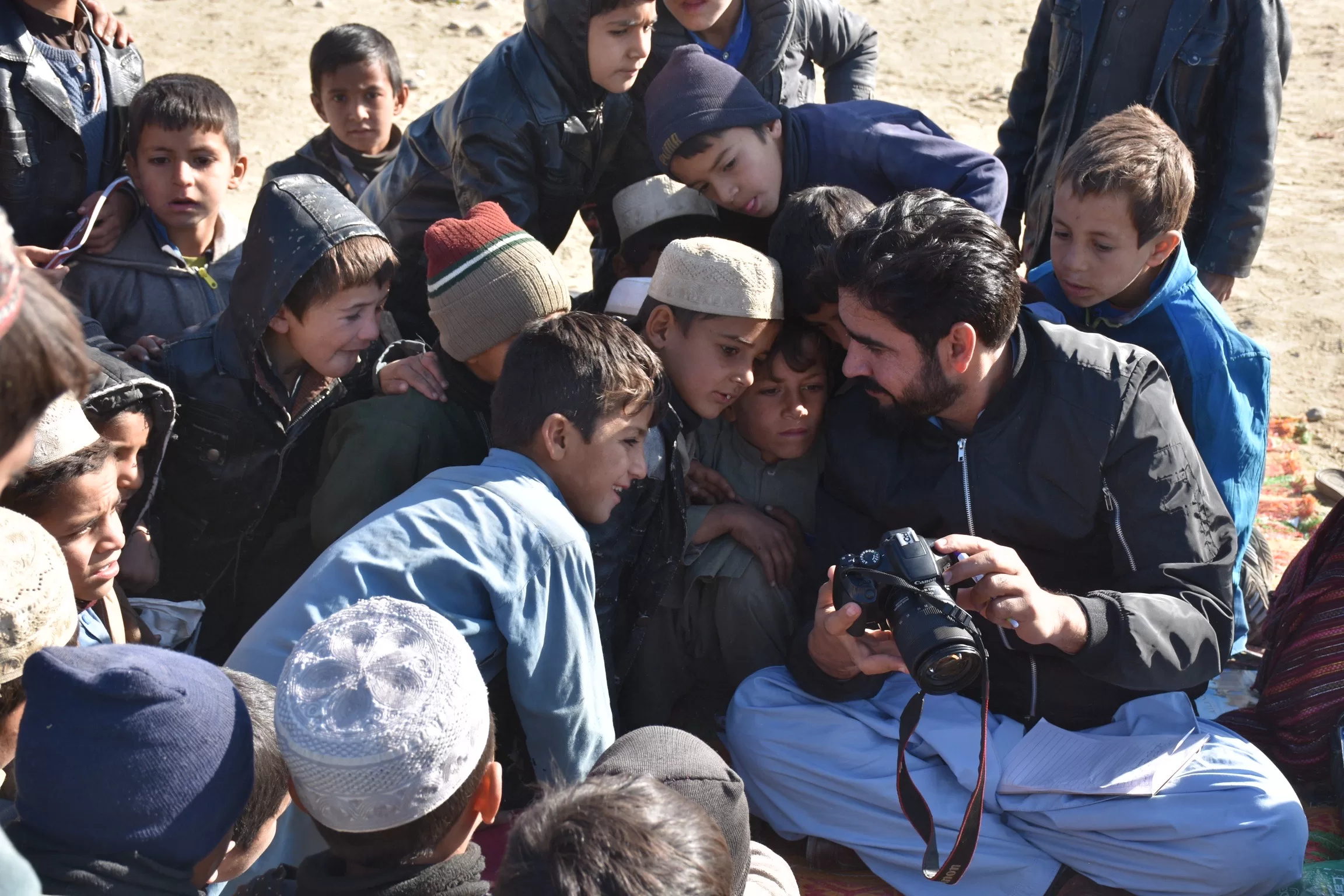
Through Pen Path, Matiullah Wesa has worked to ensure all children have access to education, teaching materials and books. After the Taliban’s takeover, this focus turned to protecting education for girls and women.
Matiullah Wesa established Pen Path in 2009 to campaign for greater access to education for boys and girls in Afghanistan. In this role, Wesa visited 34 provinces of the country and almost all districts. Pen Path’s first step was to re-open closed schools, after The Taliban had previously shut them down in the remote villages of Afghanistan. Prior to The Taliban’s takeover, Pen Path acted as mediator between the government and the Taliban, while also encouraging local elders to collaborate with them to re-open those schools. It is estimated by Pen Path that their team, to date, has re-opened more than a hundred schools and established a number of new schools across the country.
To date, Pen Path has also provided stationery and children’s books to approximately 300,000 children. Pen Path also established 39 libraries in rural areas to provide access to books for the general public (especially women who could not go to school due to restrictions).
To further extend the reach of education across Afghanistan, Pen Path launched a programme of mobile classes delivered via a specially designed motorbike fitted with a computer screen and speakers, as well as a bookcase, teaching materials and a mobile library.
On 27 March 2023, Matiullah Wesa was arbitrarily arrested by the Taliban’s General Directorate of Intelligence (GDI), while returning from evening prayer. The day after his arrest, the GDI raided his house and confiscated his personal mobile and laptop. On 29 March, the Taliban spokesperson confirmed his arrest, accusing him of illegal activities. His family have not been allowed to visit him and there has been no avenue to challenge the legality of his detention.
Olesya Krivtsova (Russia)

Olesya Krivtsova is a Russian student, who was targeted by the Russian authorities for opposing the unlawful Russian invasion of Ukraine
Over the first year of the Russian invasion of Ukraine, Olesya organised partisan anti-war actions in her small town of Arkhangelsk. This included posting anti-war leaflets and posting anti-war messages on her blog and the chat rooms set up for students based at her university. Olesya took the risks to do this to “counter Russian propaganda and promote alternative information about the war in Ukraine among students and other residents of my city.”
As a result of these acts, Krivtsova was placed under house arrest in January, and banned from using the internet on the charges of discrediting the Russian army and justifying terrorism. It has been reported that her classmates reported her to the authorities after taking screenshots of her anti-war messages. She was also added to the country’s official list of terrorists and extremists. Due to the severity of the charges, she faced up to 10 years in prison. In March 2023, Olesya uploaded a video of her cutting off her monitoring tag and she fled Russia for Lithuania.
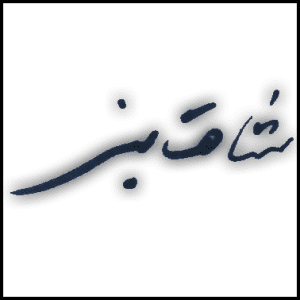 Xinjiang Victim’s Database (China)
Xinjiang Victim’s Database (China)
The Xinjiang Victim’s Database attempts to overcome the secrecy and silence that defines the incarceration and persecution of the Uyghur population in Xinjiang by giving journalists and researchers resources and data to support their work.
The Database aims to make Xinjiang and the mass-incarceration policies taking place there as transparent and accessible for the world at large as possible. This is done primarily by documenting the individual victims and their situations in as much detail as available data allow. In addition to this, they maintain a number of side databases, such as monitoring the facilities where victims are held, the villages/neighbourhoods they come from, the individuals in the government/police linked to their detentions, and the collection/translation of various primary-source materials, such as eyewitness accounts or government/police/court records.
The Database serves as a free-to-use tool for researchers, journalists, and advocates. Additionally, it provides several specific tools to the public: an ID search that allows 10,000s of internal and public documents held by the database to be searched for information about specific people, a name translator to convert Chinese pinyin versions to more appropriate Turkic versions (e.g. Memet instead of Maimaiti), and a translation bank that combines the Database’s 10 in-house dictionaries to assist with translation of Xinjiang-related texts.
Africa Human Rights Network (Africa-wide)
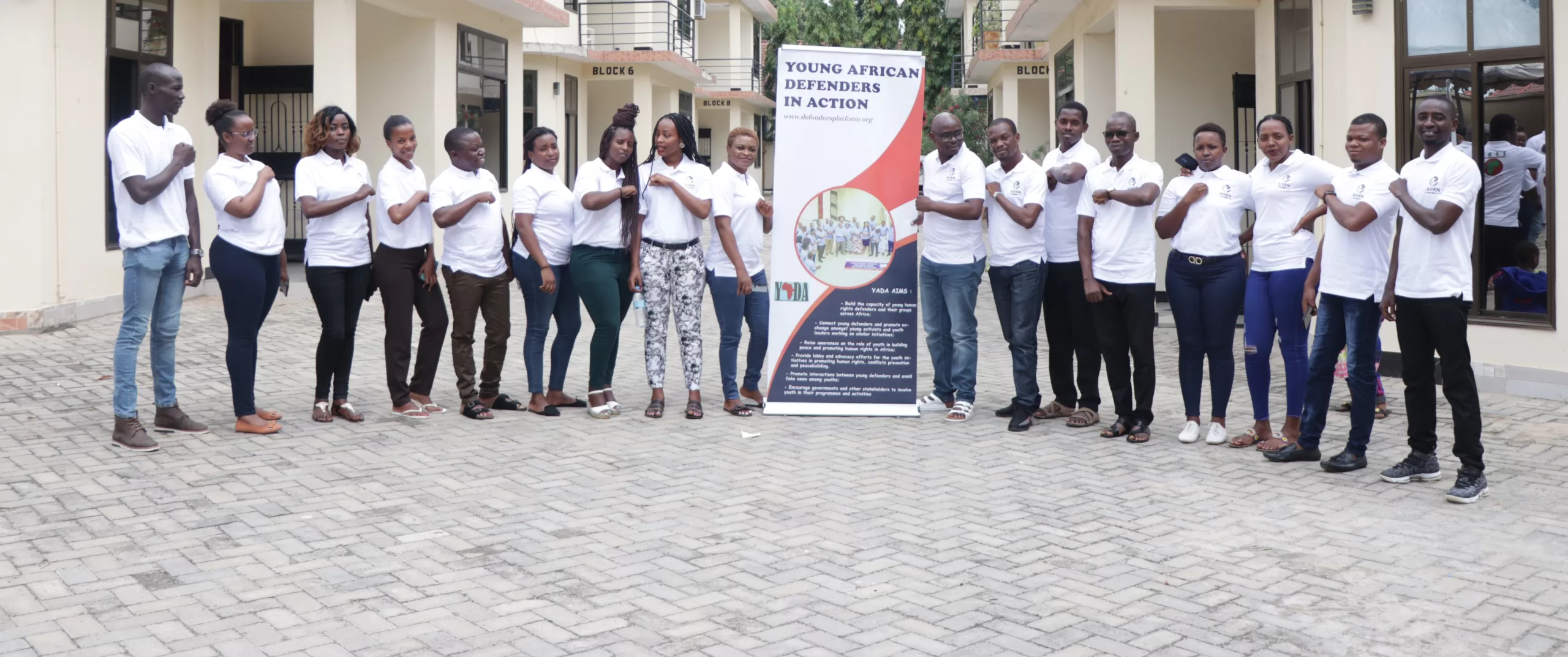
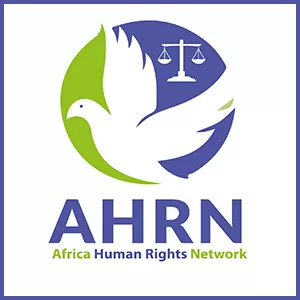 The AHRN works to support and protect human rights defenders (HRDs) across the Great Lakes region of Africa to ensure they can speak up and protect human rights and democracy across Africa.
The AHRN works to support and protect human rights defenders (HRDs) across the Great Lakes region of Africa to ensure they can speak up and protect human rights and democracy across Africa.
The main goal of AHRN is to promote and protect the work of Human Rights Defenders, including activists, bloggers, journalists, feminists, environmental defenders and many others. This work includes advocating for and protecting HRD at risk. It does this through its protection programme and shelter city scheme, which started in 2017 with the launch of the Dar es Salaam Shelter City which is a regional temporary relocation program for at-risk HRDs operation in the African Great Lakes Region. In 2019, this scheme was expanded after the launch of the shelter city Benin to provide temporary relocation to at-risk human rights defenders from Central and west African countries especially those from Francophone countries. As well as direct support, AHRN also facilitates engagement between HRDs in Africa to share capacity building expertise, exchange experience and foster stronger relationships of support and solidarity.
The organisation also provides a platform to more than 175 grassroots civil society organisations that have proven capacity to implement human rights projects in Africa. As a result, AHRN has been able to establish a platform of local HRDs who have decided to organise themselves to improve their working environment and security. This networked approach has defined AHRN’s work. In 2021, they created the YADA Network (Young African Defenders in Action) following a workshop attended by young people from 18 African countries. While it is present in 18 countries, the AHRN’s goal is to extend the Network to 30 countries by the end of 2023. They also created Africanactivists.com, which is a specialised social media platform for HRDs to connect with others and share information in real time.
24 Jan 2023 | Africa, News and features, Rwanda
Rwandan journalist John Williams Ntwali - who many believed was the last remaining independent journalist in the country - died last week. He was apparently killed in a road accident in the country’s capital, Kigali, in the early hours of 18 January 2023. He was 43 years old, and leaves behind a wife and child.
It has been reported that a speeding vehicle crashed into the motorcycle he was riding as a passenger. Police spokesman John Bosco Cabera told Reuters that Ntwali was the sole fatality.
Ntwali, who was a leading investigative journalist and editor of the Rwandan-based news publication The Chronicles, was one of the few journalists who was openly critical of Paul Kagame, who became president of Rwanda in 2000. Several journalists and commentators are currently imprisoned under Kagame’s regime.
Ntwali was regularly threatened as a journalist exposing human rights abuses in Rwanda.
“I’m focused on justice, human rights, and advocacy. I know those three areas are risky here in Rwanda, but I’m committed to [them],” he told Al Jazeera. He also spoke about how death threats were common as part of his work.
There were widespread tributes to Ntwali’s death after it was announced.
The Rwanda Journalists Association said: “We are saddened by the death of journalist John Williams Ntwali this week in a road accident. Our condolences go out to his family, the wider media community and friends and relatives. May God rest in peace.”
MP and president of the Democratic Green Party of Rwanda, Frank Habineza, wrote: “It is with great sadness that we share the tragic news of the death of journalist John Williams, who died in an accident. We are patient with his family. God bless you. Our sincere condolences. May his soul rest in eternal glory.”
As the authorities have yet to produce any reports or evidence from Ntwali’s fatal accident, Lewis Mudge, Central African Director at Human Rights Watch, wrote that he not only dared to report about political repression but that “he joins a long list of people who have challenged the government and died in suspicious circumstances.”
The Human Rights Foundation said that his death is considered suspicious as he was in “the regime's crosshairs for his journalistic work.”
There have also been calls for an independent enquiry into Ntwali’s death, with Ntwali’s family and friends requesting an independent international investigation. Angela Quintal, Africa programme coordinator for the Committee to Protect Journalists, said Ntwali will be mourned and also called for “a transparent, comprehensive, and credible accounting of the circumstances that led to his death.” Index join in these calls for accountability.
Ntwali’s funeral was held in the Gacurabwenge sector of the Kamonyi district, Rwanda, on 22 January 2023.
Rwanda was ranked 136 out of 180 countries in Reporters Without Borders 2022 World Press Freedom Index. According to the organisation, media owners must pledge allegiance to the government, and methods such as espionage, surveillance, arrest and forced disappearance is used in the county to prevent journalists from working freely. It also says that arbitrary arrests and detention of journalists have increased in recent years.
Ntwali's death comes one year ahead of Rwanda going to the polls. Last summer Kagame said that he planned to run again in 2024, seeking his fourth term in office.
“I would consider running for another 20 years. I have no problem with that. Elections are about people choosing,” he told France 24. In 2017, Kagame reportedly won 99% of the vote, leading to cries of foul-play. Whether Ntwali's death was suspicious or not, his death leaves a huge hole in Rwanda's media landscape. Who is now left to speak out against Kagame?
27 May 2022 | Chad, News and features
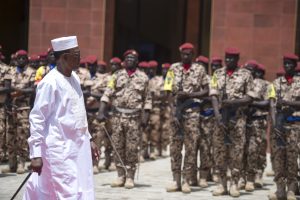
Swearing in ceremony of President Idriss Deby Itno of Chad in 2016. Photo: Paul Kagame, CC BY-NC-ND 2.0
More than a year after Chad’s former president was killed in battle, the central African country remains in turmoil and freedom of expression remains under attack.
Idriss Déby Itno was killed in April 2021 on the battlefront between government troops and rebels from the Front for Change and Concord in the north of the country. His death was announced just a day after provisional results from the 11th April president election showed he had won re-election.
The election result was widely seen as dubious. Leading opposition figure Saleh Kebzabo had withdrawn from the elections after family members of another candidate were killed during a deadly shootout.
Chad has been under the increasingly authoritarian grip of Idriss Déby Itno since 1990 when he seized power in a coup.
In March 2018, Déby had implemented a social media ban following widespread public protests against constitutional changes that would have allowed him to rule until 2033. The ban was lifted only 16 months later.
The country has been the target of regular internet shutdowns by the government. The KeepItOn coalition says there were more than 900 days of internet shutdowns, including throttling of internet speeds, total internet blackouts as well as the social media blocks, between 2016 and 2021.
After Déby’s death, the military took control, dissolving parliament and putting a transitional military council (TMC) in charge of the country under the leadership of Déby’s son Mahamat.
The council promised free and democratic elections within 18 months, following a national reconciliation dialogue that would involve parties from all sides.
In September, the TMC appointed a 93-member national transitional council to perform the functions of government. However, some prominent members of Wakit Tama, a coalition of human rights groups and opposition figures, who had denounced the coup were excluded for this.
That process has since moved slowly, and free and fair elections look unlikely any time soon. An inability to agree on who should be involved in the council and any national reconciliation dialogue has slowed the process to a crawl, although some of the parties are now in the Qatari capital Doha taking part in what is being called a pre-dialogue, a process that has already lasted two months.
The transition to fair and free elections has now been thrown into even greater disarray after a number of civil society leaders were detained during protests on 14th May organised by Wakit Tama.
During the protests, several symbols of France’s colonial power, including a number of Total petrol stations, were attacked and policemen injured. Wakit Tama and the four arrested have denied any involvement in the violence.
The four arrested were Gounoung Vaima Gan Fare, secretary general of the Union des Syndicats du Tchad, Youssouf Korom Ahmat, secretary general of the Syndicat des commercants fournisseurs du Tchad, Koudé Mbainaissem, a lawyer and president of the Association for Freedom of Expression, as well as Wakit Tama coordinator Max Loalngar.
The protests were intended to highlight human rights violations in the country, call for the inclusion of human rights defenders in the transition and oppose a continuing French military presence in Chad.
Opposition leader Saleh Kebzabo said the protests threatened the process of reconciliation.
Three days after the protests he tweeted, “In Doha, there is a Chad in miniature where nearly 200 Chadians have been engaged in a debate for two months to participate in the [national reconciliation dialogue]. All Chadians are waiting for this unique moment for a real rebuilding of the country, and I believe it is a unique opportunity.”
“During this time, we learn that other Chadians are preparing the [dialogue] in their own way by marches to ransack and loot, against the French presence in Chad. This is a false debate that risks hiding all our real problems, which are unfortunately many.”
The four are currently being detained at the high security Mossoro prison and will face a court hearing on 6th June, although none has yet been charged with any offence. Front Line Defenders believes that they are being targeted “solely as a result of their legitimate and peaceful work in defence of human rights”. Human Rights Watch calls the detentions “politically motivated”.
Despite the pre-dialogue in Doha, the government has now postponed the main dialogue on a transition to democracy to some unspecified date in the future. The omens are not good.



 Xinjiang Victim’s Database (China)
Xinjiang Victim’s Database (China)
 The AHRN works to support and protect human rights defenders (HRDs) across the Great Lakes region of Africa to ensure they can speak up and protect human rights and democracy across Africa.
The AHRN works to support and protect human rights defenders (HRDs) across the Great Lakes region of Africa to ensure they can speak up and protect human rights and democracy across Africa.